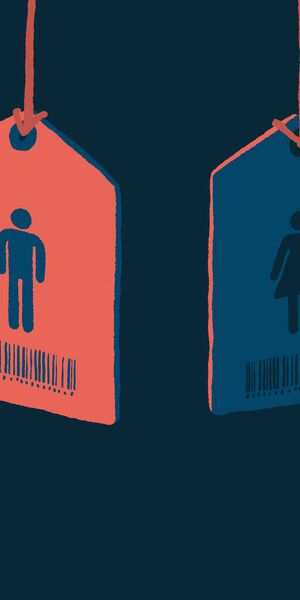BBC investigation highlights trafficking victims getting ‘stuck in limbo’ waiting for assessment
Human Trafficking
A BBC Radio 4 investigation has highlighted the long delays facing many victims of modern slavery and human trafficking as they wait for government officials to confirm their status.
The National Referral Mechanism or NRM is the official process which determines if there is enough evidence to confirm that someone has been a victim of trafficking. The NRM is a two-stage process. Following a positive decision at the first stage, adults are able to access specialist support and assistance while the final decision is being made. A decision at that final stage confirming that someone is a victim can impact a victim’s immigration status, whether they are able to seek compensation and even whether they will be prosecuted for crimes that they were forced to commit by their traffickers.
Information uncovered by the BBC reveals that in November 2018 2,200 people had been waiting more than a year for a decision – a decision which is supposed to be made as soon as possible after the 45-day long recovery period given to victims after the first stage decision.
Since the NRM was set up in 2009 the number of people thought to be victims and referred into the process has increased dramatically and the system just is not able to cope, leading to extensive delays. The BBC reports Home Office officials expressing concern in September 2017 about an “antiquated system” and "substantial delays" that left suspected victims "in limbo". But these problems are not new.
Slow progress toward reform
The Government undertook a review of the NRM in 2014 which highlighted then that decisions were taking longer than they should. But efforts to reform the NRM process over the past four years have been slow and exacerbated by the annual increase in the number of possible victims being referred into the system. A National Audit Office report in 2017 again found that the authorities are “taking longer than they expect to make decisions, causing further distress and anxiety to the vulnerable people in the system” and criticised the Home Office’s failure to implement any reforms to the NRM process since the review in 2014.
In October 2017 The Government announced plans for a new digital system which it hopes will improve NRM record-keeping and the replacement of the two decision-making bodies with a single unit in the Home Office. These are due to be up and running during 2019 although whether they will help speed up decision-making is yet to be seen.
Leaving victims in limbo
Victims enter the NRM following a period of exploitation, a time where autonomy has been taken away from them and they have been under the control of their traffickers. Sadly, rather than giving them back some control of their life, the NRM process still leaves them powerless by not knowing when they will receive a decision from officials, not knowing whether they have been believed and unable to plan for the future.
This endless waiting exacerbated by delays can be very detrimental to victims’ recovery and can even put them at risk of re-trafficking. The National Audit Office reported that they interviewed a number of possible victims who were waiting for an NRM decision who said that they experienced great anxiety and uncertainty while awaiting the final decision.
Although possible victims within the NRM process can access support, health care and counselling, for many of them the uncertainty about the future means they are not able to engage fully with therapy to process their traumatic experiences. Victims from outside the EU are also not able to work while waiting for an NRM decision which can make them vulnerable to re-trafficking. Traffickers will often control their victims by telling them that they owe huge sums of money sometimes threatening a victim’s family back home if the money is not paid. Victims in these circumstances may even return to their traffickers or be exploited by others in order to repay those debts.
Time for action
At the moment the balance in the NRM between ensuring proper process and protecting victims’ is off-kilter. There is an urgent need for improvements to the system, to make it more attuned to and focused on the needs of victims. Vulnerable people cannot be left hanging for months or years waiting for a decision. The Government must make sure that the current reform process is implemented swiftly and effectively this year. The Home Office must also take steps to ensure these changes will improve both the quality and speed of decision-making.
A much bigger problem
The delays in the NRM are just one of the many problems with the system to provide support to modern slavery victims. Even when victims eventually receive the letter confirming their status as a victim, although the waiting is over and victims have the affirmation and confidence from being believed, in practice that status gives them very little. It may help them to be given permission to stay in the UK to continue their recovery, but that is not guaranteed.
The last available data tells us that only about 12% of victims are granted permission to stay longer in the UK to get extra support or to help with police investigations. There is a big risk that even at the end of the stressful drawn out process, victims will be at risk of homelessness or re-trafficking because their future remains uncertain.
CARE continues to call on the Government to support the Modern Slavery (Victim Support) Bill introduced by Lord McColl of Dulwich and Iain Duncan Smith MP to give a year of support in the UK to all victims who receive victim status at the end of the NRM process.
You can read more about the BBC investigation here and the File on 4 programme will be available here following broadcast at 8.00pm on 22 January 2019.
Find out more about the Modern Slavery (Victim Support) Bill and email your MP via the Free for Good campaign website





Share story
BBC investigation highlights trafficking victims getting ‘stuck in limbo’ waiting for assessment